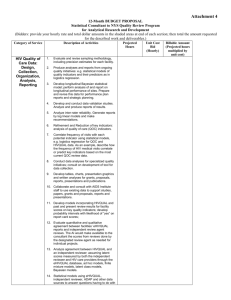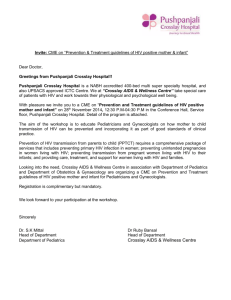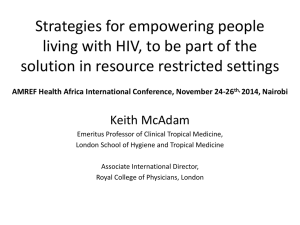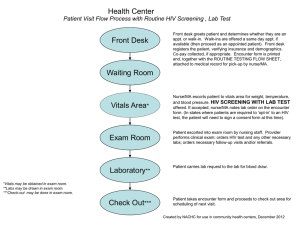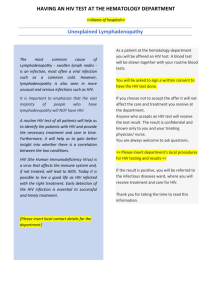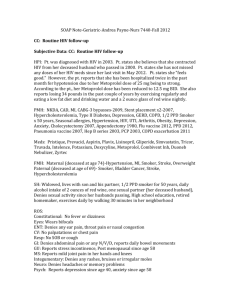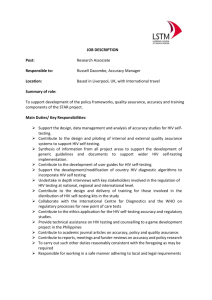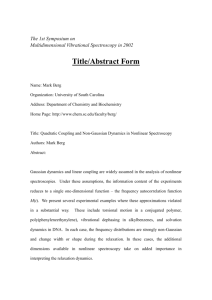A Bayesian approach for estimating antiviral efficacy
advertisement
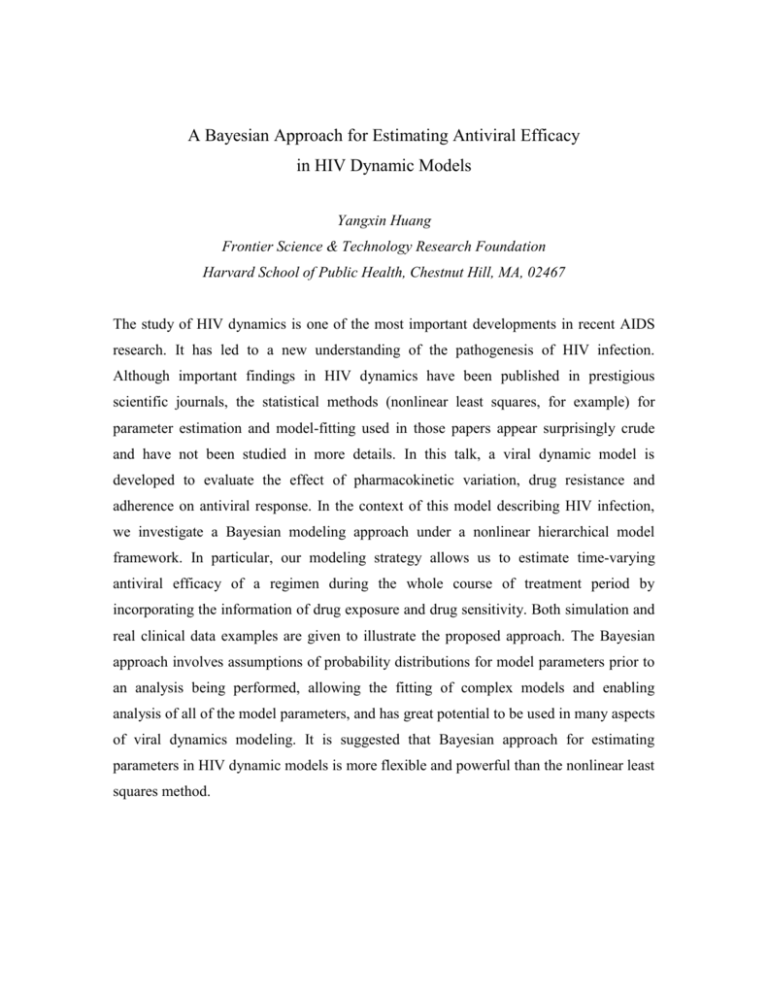
A Bayesian Approach for Estimating Antiviral Efficacy in HIV Dynamic Models Yangxin Huang Frontier Science & Technology Research Foundation Harvard School of Public Health, Chestnut Hill, MA, 02467 The study of HIV dynamics is one of the most important developments in recent AIDS research. It has led to a new understanding of the pathogenesis of HIV infection. Although important findings in HIV dynamics have been published in prestigious scientific journals, the statistical methods (nonlinear least squares, for example) for parameter estimation and model-fitting used in those papers appear surprisingly crude and have not been studied in more details. In this talk, a viral dynamic model is developed to evaluate the effect of pharmacokinetic variation, drug resistance and adherence on antiviral response. In the context of this model describing HIV infection, we investigate a Bayesian modeling approach under a nonlinear hierarchical model framework. In particular, our modeling strategy allows us to estimate time-varying antiviral efficacy of a regimen during the whole course of treatment period by incorporating the information of drug exposure and drug sensitivity. Both simulation and real clinical data examples are given to illustrate the proposed approach. The Bayesian approach involves assumptions of probability distributions for model parameters prior to an analysis being performed, allowing the fitting of complex models and enabling analysis of all of the model parameters, and has great potential to be used in many aspects of viral dynamics modeling. It is suggested that Bayesian approach for estimating parameters in HIV dynamic models is more flexible and powerful than the nonlinear least squares method.



